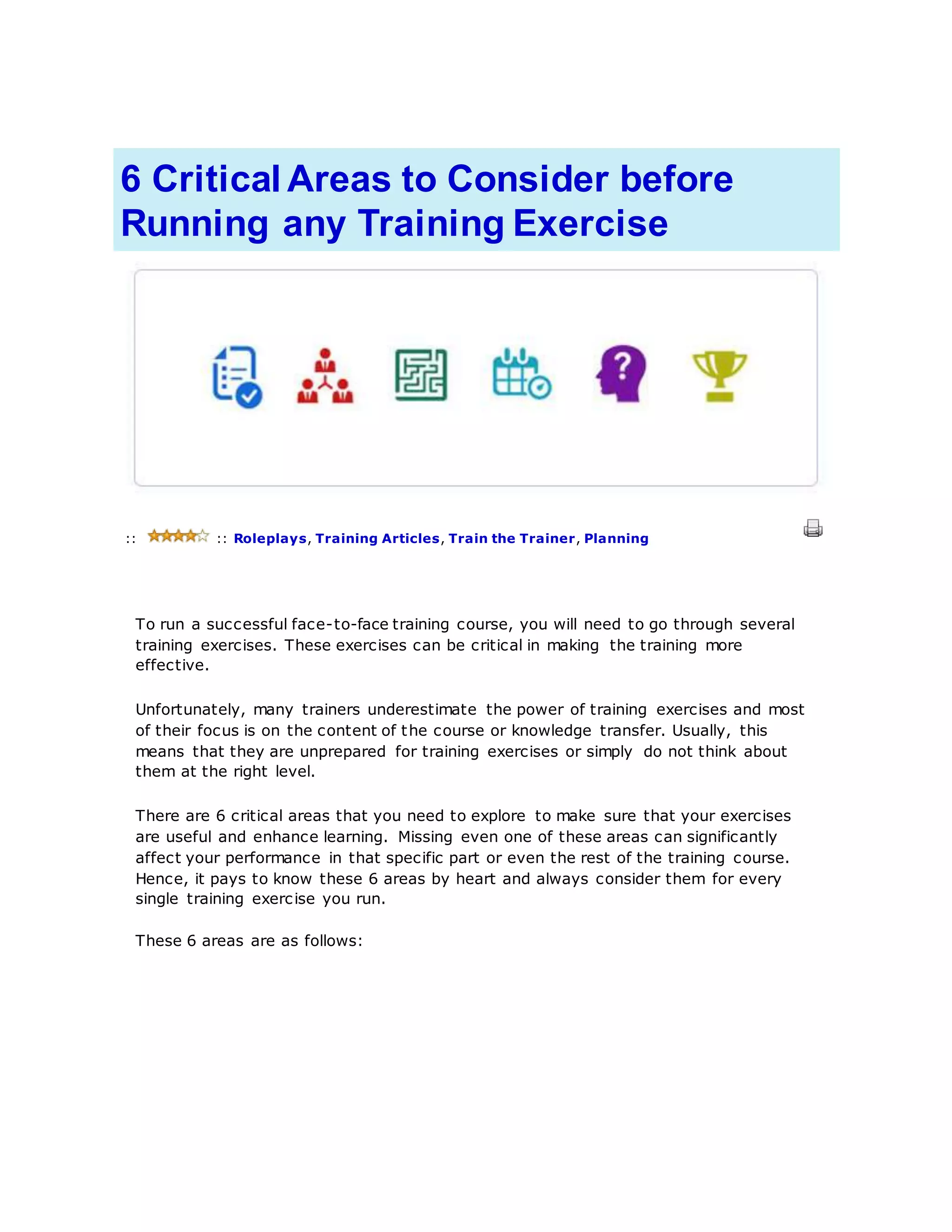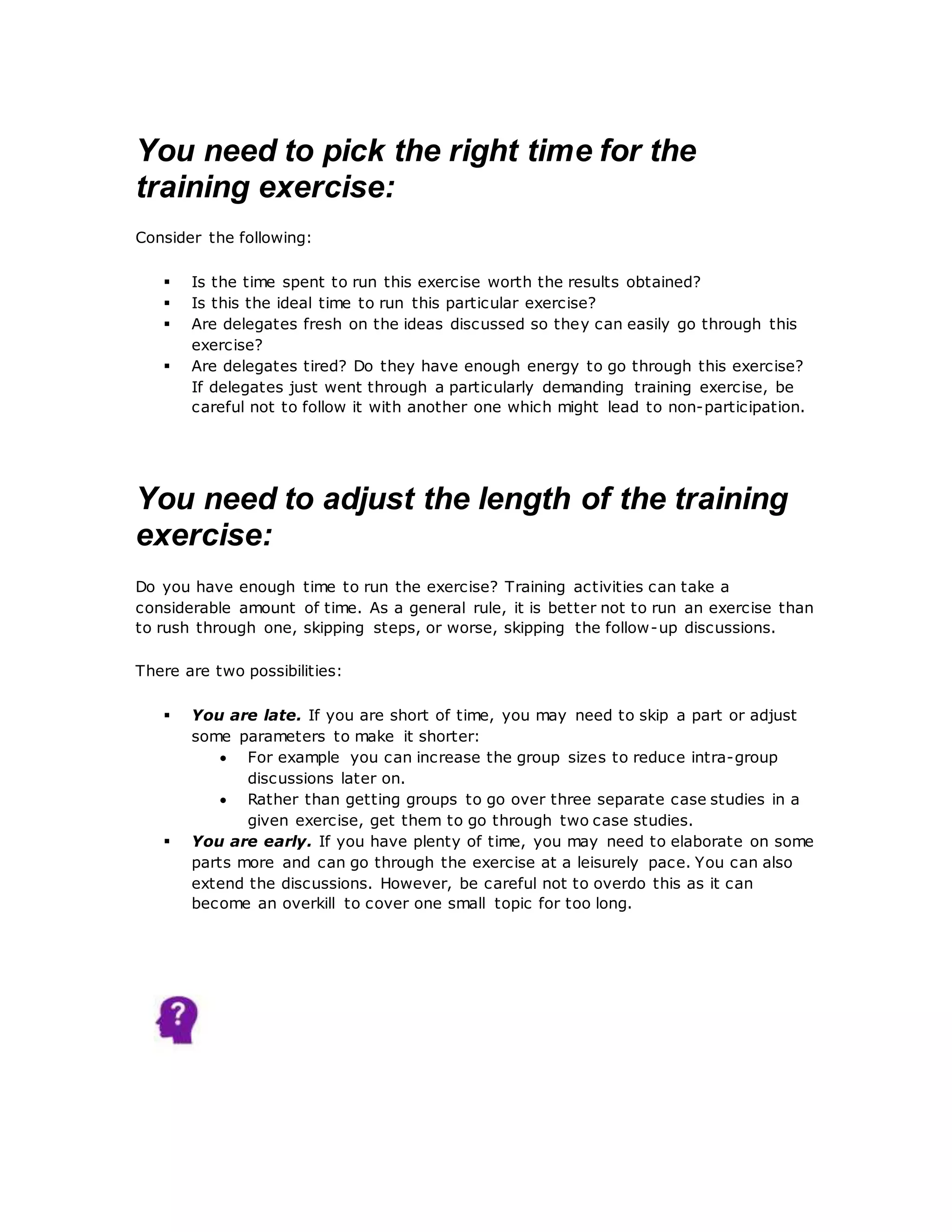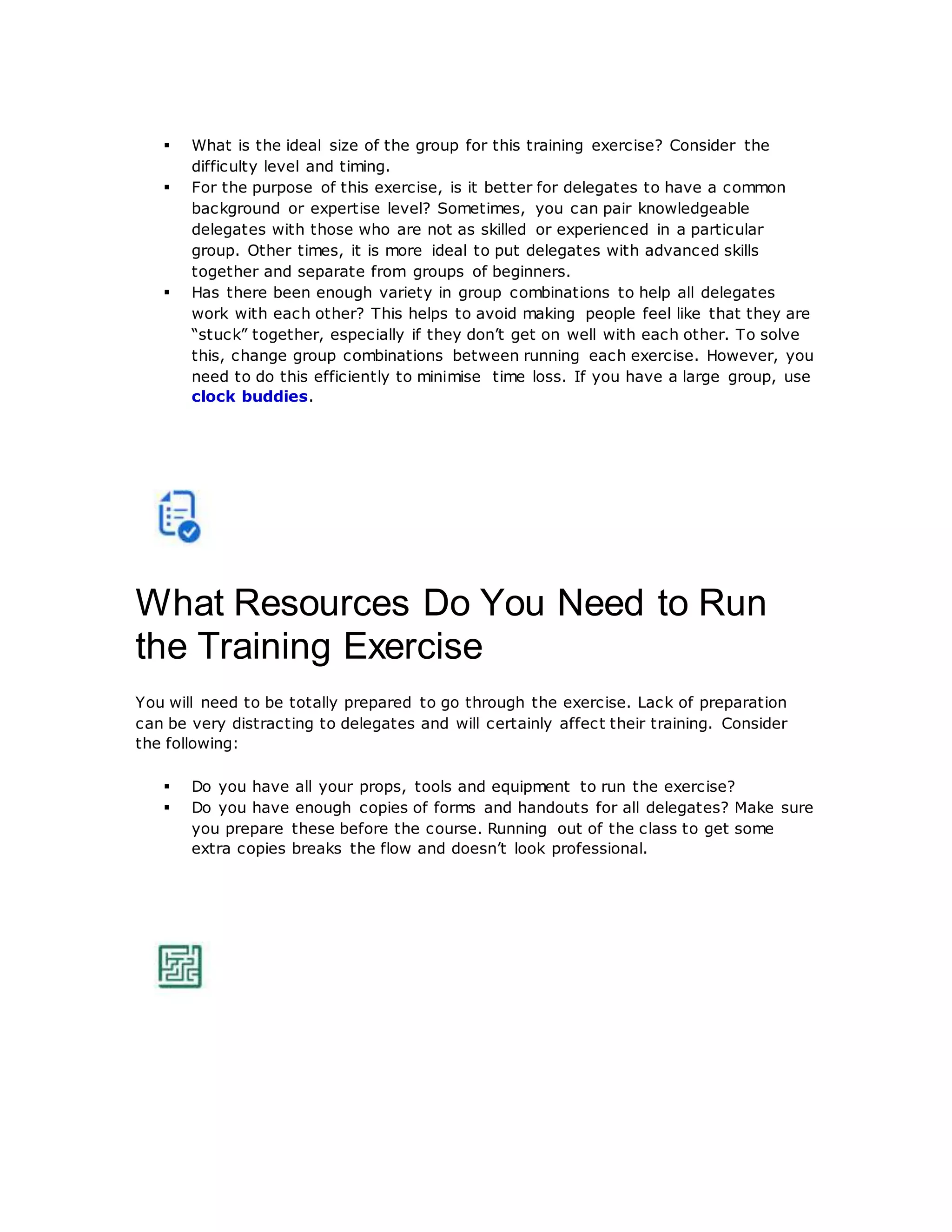The document discusses 6 critical areas to consider when planning training exercises: 1) the purpose and learning objectives of the exercise, 2) the allotted time, 3) the needs of delegates, 4) optimal group combinations, 5) necessary resources, and 6) clear sequencing of activity steps. Ignoring any of these areas can negatively impact the exercise and training outcomes. Proper planning in these 6 areas will help make exercises effective learning tools.





